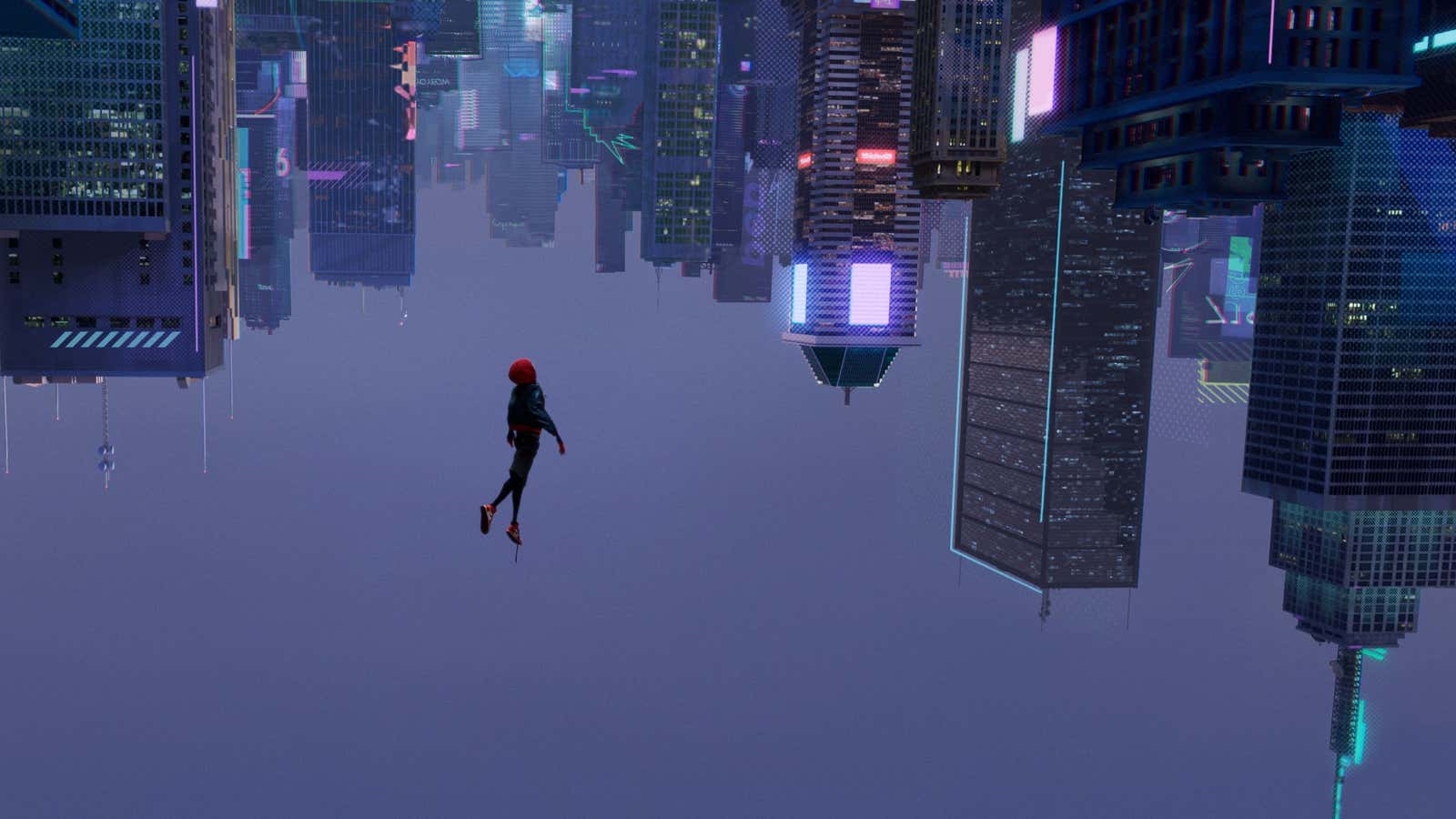Superhero fans descended into a panic yesterday when news broke that Disney’s Marvel Studios and Sony Pictures could not agree on financial terms for upcoming Spider-Man movies, putting the cinematic future of the beloved character in jeopardy.
The last two Spider-Man flicks (2017’s Homecoming and 2019’s Far From Home) were produced by Sony—which owns the film rights to the character—with creative help from Marvel president and renowned superhero whisperer Kevin Feige, in exchange for Sony allowing the web-slinger to appear in Marvel’s suite of movies alongside its other heroes (as he did in Disney’s Avengers: Endgame, for instance).
The arrangement was a win for both sides: Disney got to unite all its characters and maintained Spidey’s lucrative merchandising rights, even if Sony still kept most of the box-office earnings. Meanwhile, Sony got help turning its biggest franchise around after the two disappointing Andrew Garfield Spider-Man movies (both were made without any Disney or Feige input). Disney was happy with the long-awaited superhero synergy, Sony was overjoyed at the rampant critical and commercial successes of the revitalized franchise, and, most of all, the fans were euphoric over the previously only dreamt-about cinematic unification of Spider-Man with the likes of Iron Man, Captain America, and Thor.
But all that’s probably over now. According to Deadline, Disney wanted a 50-50 box-office split on future Spider-Man movies, while Sony felt that was too big an asking price for Feige’s help. Sony responded with its own statement, saying it was “disappointed” that the two studios failed to reach a new deal, and blamed the impasse on Feige’s busy schedule coordinating the rest of the Marvel Cinematic Universe. It’s possible that both sides are using the media as a negotiating tool, and that an arrangement could still be reached in the future. But for now, it appears the dream of Spider-Man is dead.
That’s what Disney acolytes expect, anyway. The prevailing notion on Film Twitter and other social media platforms is that Sony doesn’t know how to handle the character on its own. But the studio—though wildly inconsistent—has already proven several times that it does.
The best Spider-Man movie ever was made just last year, completely without guidance from Disney or Feige. It was called Spider-Man: Into the Spider-Verse, and it won the Academy Award for best animated film (the first non-Disney or Pixar film to do so in seven years).
Into the Spider-Verse is one of the most inventive and daring superhero movies of all time. Set in a “multiverse” of alternate realities, the film follows Brooklyn teen Miles Morales as he assumes the mantle of Spider-Man and joins with a quirky crew of other Spider-Men and women from these alternate realities to save New York from the notoriously thicc villain Kingpin. It’s more fun and ballsy than anything Marvel Studios has made, imbued with a relentless kinetic energy from start to finish.
The film’s revolutionary style of animation replicates the experience of reading a comic book, and it looks totally unlike every other American animated film today. Somehow, even after dozens of tired, same-y superhero movies, Into the Spider-Verse represented something new.
“Yeah, well, sure, but that was animated,” skeptics might say. “I’d like to see Sony make a live-action Spider-Man as good as that without Disney telling them what to do.” How quickly you forget, little one. Sony did make a spectacular live-action Spider-Man, years before the grand Marvel Cinematic Universe was even a twinkle in Kevin Feige’s eye. That one was called Spider-Man 2. It came out 15 years ago. It’s still one of the best comic-book movies ever made.
Directed by Sam Raimi and starring a young Tobey Maguire as the titular hero, Spider-Man 2 is superhero entertainment at its absolute best. Raimi’s film is layered and introspective without losing any of the charms that make Spider-Man such a fun character. Alfred Molina’s Doctor Octopus is a complex and genuinely interesting villain—something Marvel movies have historically struggled to develop. I mean, just watch that train scene:
Granted, Spider-Man 3, which followed a few years later, was a disaster, and the subsequent reboot with Andrew Garfield also left a lot to be desired. Sony was smart to ask Disney for help rejuvenating the character. (In this era of franchise blockbusters, simply not making any more Spidey movies obviously wasn’t an option.) But Sony doesn’t necessarily need the Mouse House’s assistance moving forward.
In fact, the chances of audiences getting to experience a true gem like Into the Spider-Verse are much greater without Disney’s influence. Sure, Disney’s superhero movies are almost always entertaining. But they’re all so similar. There isn’t room for a weird, wondrous thing like Spider-Verse in the MCU. The best chance of getting something else like that—or better yet, something else completely unique—is to let Sony go at it alone, even if it means another dud or two before it strikes gold again.
